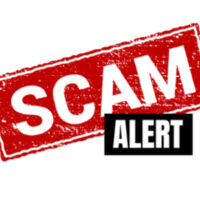Fake Hurricane Charities

After a hurricane or other natural disaster, scam charities pop up faster than weeds in an untended garden. Scammers have become much more sophisticated over the years, and some of them even use crowdfunding sites to bilk people out of money.
A scam charity preys on the human instinct to help those in need. We encourage everyone to give to charity, if they can, but we also want to empower the public to identify scams. Below, we offer our best tips for identifying whether a charity is legitimate or a hustle.
Ask for Information about the Charity
If someone calls you over the phone, then avoid handing out your credit card number until you get something in writing about the charity. Legitimate charities should tell you who works for the charity, how much they bring in each year, and what percentage is spent on salaries and other overhead.
If you don’t receive this information, you should not give to the charity. Instead, find one that will provide this critical information.
Do an Online Search
Always investigate any charity online before donating. You might find other complaints from people who feel like they have been hosed. You can check with the Better Business Bureau but also perform a general Google search.
Check with the Florida Department of Agriculture and Consumer Services
This agency oversees charities in Florida. You can use their Check-A-Charity search feature to obtain financial information about a charity. You can also call 1-800-435-7352. If this agency has no information on the charity, then this is a huge red flag.
Be Wary of Crowdfunding Sites
Many people post a sob story on Kickstarter and ask for donations, and many susceptible people hand over their credit card information. It is very difficult to find out whether the request is legitimate or if the person is a scammer. For example, people might post pictures of their home damaged by the hurricane, but these pictures could be ripped off the internet.
Trust your gut. If a story sounds too sad to be true, it probably is. You should also perform an image search using Google for any pictures that they post. This search can reveal if people stole pictures from others online in their attempt to construct a fake identity.
Talk with Friends or Family
Many elderly are targeted for charity scams. Before giving, you should discuss this with your children or another trusted friend. They might spot right off that something looks suspicious.
Never Give Cash
It is too easy for someone to keep cash. Even if the charity is legitimate, the worker contacting you might be looking to steal some money. Instead of sending cash, use a check or preferably pay with a credit card. If you use a card, you can also cancel the contribution if you discover the charity is illegitimate.
File a Complaint with the State
If you think you have been scammed, you should quickly call the state at the number listed above or use their online form to report the charity. The state can take quick action to shut down scams.
Bundza & Rodriguez is a leading law firm that helps those who have been injured or suffered damage in a hurricane. If you have a legal question, please contact our Daytona Beach hurricane insurance claims lawyers today to schedule a free consultation.
https://www.daytonalawyers.com/hurricane-related-illnesses-and-diseases/
